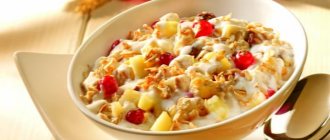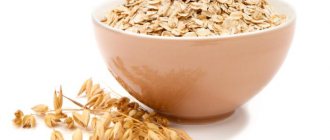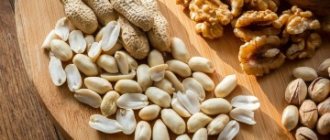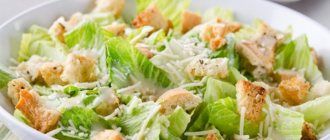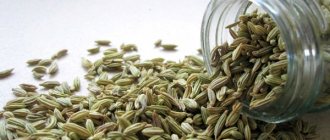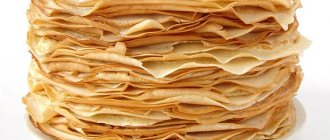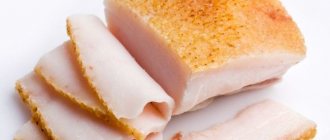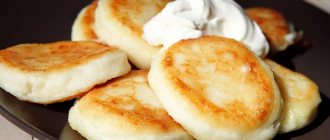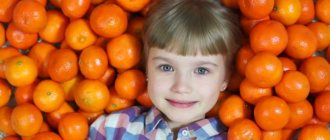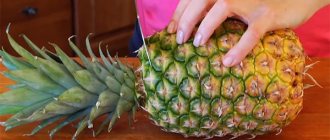I would like to remind you that one of the important components of a proper and healthy diet for a nursing mother is fermented milk products, the benefits of which have long been known to everyone.
Today we propose to talk about whether hard cheese is allowed during breastfeeding and, if so, in what quantity, and what kind, because this question interests many breastfeeding women. Those who are still little informed on this issue want to know which foods can be consumed in their diet and which should be avoided so as not to harm the newborn.
Composition and types of hard cheeses
Cheese contains a large amount of calcium, which is so necessary during lactation. But, with unlimited consumption, hard cheese can cause harm, so you need to know the norms for cheese consumption, as well as take a responsible approach to choosing a quality product.
What is real hard cheese? This is a food product that is obtained by coagulating milk with the help of enzymes and lactic acid bacteria. The manufacturing process lasts at least 3 months.
Currently, there is a huge variety of types of hard cheese. Its recipes are being improved and new ones appear every day.
Depending on the manufacturing technology, cheeses can be Swiss, Dutch, Cheddar cheeses, or blue cheeses. They all differ in taste characteristics, as well as composition.
The main ingredients of hard cheeses are milk (various types can be used), fermented milk starter and enzymes for milk coagulation.
Hard cheese has a huge vitamin and mineral complex. It includes vitamins of groups A, B, C, D, E, PP, microelements: calcium, phosphorus, magnesium, iron, potassium, sodium and many others.
The composition of hard cheese and its production technology affect the nutritional properties of the cheese, as well as its calorie content.
The average calorie content of cheese is about 350 kcal / 100 g of product.
What kind of cheese can you use while breastfeeding?
To answer the question whether cheese can be consumed while breastfeeding, it is necessary to determine the composition and properties of the product. It is important to choose the type that will avoid side effects, such as colic and allergies in the baby.
Cheese during breastfeeding is a healthy product, but not all types of it are allowed for consumption during this period by a nursing woman.
Composition and benefits of cheese
Cheese is a storehouse of useful elements that are necessary for the health of mother and child. Milk protein is easily digestible and processed, does not cause difficulty in digestion, and prevents the development of fermentation processes.
Benefits of cheese:
- Thanks to its zinc content, the product renews tissue at the cellular level, strengthens the structure of hair and nails, improves the condition of the skin, and also actively fights infections.
- Calcium ensures proper blood clotting, is necessary for the structure of the skeletal system, and is responsible for the activity of nerve endings.
- Iron is an important element for the circulatory system and keeps the structure of muscle fibers in good shape.
- Phosphorus regulates the condition of muscles and bones in the newborn’s body.
- The microelement potassium regulates the functioning of the heart, the element helps cleanse the intestines of waste and toxins, and reduces the risk of fermentation processes.
- Iodine – supports the functioning of the endocrine system, is responsible for the production of the thyroid hormone thyroxine.
- Manganese stimulates enzyme activity, relieves fatigue, improves mood, and fights insomnia. This is a necessary element for cramps and calf pain.
- Selenium slows down the aging process, eliminates facial wrinkles, improves immunity, produces energy, which is so necessary for mother and child in the process of establishing guardianship.
With moderate consumption of cheese, vision improves, the functioning of the digestive system is normalized, resistance to stress increases, cholesterol decreases, the blood is purified, hormonal levels are improved, the bone skeleton and tooth enamel are strengthened, and the water-salt balance is regulated.
Contraindications
It is prohibited to use the product during breastfeeding if you have intestinal diseases, urolithiasis, gastritis, ulcers, or milk protein intolerance.
During lactation, it is prohibited to introduce cheeses with added additives into the diet - mushrooms, herbs, ham, onions, bacon (see below). Such components cause bloating, colic, flatulence, nausea, vomiting, and upset bowel movements in the baby.
You should not eat cheese during breastfeeding as a separate dish; it is better to add it to a salad or make a sandwich with whole grain bread.
When and how to eat cheese
You should eat cheeses while breastfeeding carefully, in small portions, and carefully monitor the baby’s behavior. Already in the first month of a baby’s life, you can introduce this product into the diet, starting by eating one slice a day, putting it on bread or adding it to a salad. As an independent ingredient, it is prohibited to introduce cheese into food.
Over time, it is worth increasing the daily dose from 20 to 50 g.
If the baby’s condition does not worsen within 24 hours, a rash does not appear on the body, colic, bloating, or increased gas production, then you can continue to use the product. Otherwise, you can reintroduce it into the diet after 3-4 weeks.
Cheese can be added to desserts, pancakes, casseroles, snacks, sauces, hot dishes, the main thing is that it is of high quality, without additional ingredients, preservatives and dyes.
What cheeses to choose when
In order not to harm the baby, it is important to know what kind of cheese can be consumed during lactation. You need to start introducing cheeses with low fat content, up to 10%, into the menu. The degree of maturity of the product must be taken into account. There are more than 500 types of cheeses in the world. They differ in the method of preparation, the presence of additional components, composition, and shelf life. Many of them are prohibited during lactation.
It is known that during breastfeeding it is important to maintain a water regime. You need to drink at least 2.5 liters of liquid per day. When consuming cheeses, you will be able to avoid dehydration of the body due to the natural need to “drink water” after a delicacy, especially after pickled cheeses.
Hard rennet cheeses
Hard cheeses are made from pasteurized cow's milk. They contain lactic acid bacteria, as well as an enzyme to thicken the consistency.
These are Kostroma, Russian, Soviet, Dutch cheeses, as well as Gouda and Cheddar. They have a high degree of fat content and require time to ripen.
Subject to quality control, such a product can be included in the menu during hepatitis B, but the daily dose should not exceed 30-50 g.
Goat cheese is a dietary product that is indispensable for consumption if you are intolerant to cow's milk protein.
Goat cheese
This is a low-calorie product. It will be an excellent substitute if a mother or child is allergic to cow's milk protein.
It has a light texture, is quickly digested in the body, but can cause an increase in appetite. The fat content does not exceed 30%.
It is better to introduce goat cheese made from pasteurized milk into your diet to avoid salmonella infection. When purchasing a product, you should study the composition on the packaging and consult with the seller.
Goat cheese strengthens the skeletal system, improves digestion, and is indicated for weight loss. The beneficial bacteria contained in the product prevent the development of candidiasis and vaginitis in women and have a beneficial effect on the development of the child.
Soft pickled cheeses
Brine cheeses primarily include brizna and suluguni. Products are made based on natural enzymes and dipped into a special brine for maturation. Fat content from 40 to 50%.
Cheese cheese is a low-calorie delicacy; when consumed up to 50 g per day, it destroys putrefactive bacteria in the body and facilitates digestion. However, due to the high salt content, it is not recommended for diseases of the liver, kidneys, stomach, and circulatory system.
A young cheese of Italian origin, mozzarella, is made from buffalo milk. Contains phosphorus, potassium, vitamins A, E, essential fatty acids. It is easily absorbed by the body and brings invaluable benefits to mother and child.
Mozzarella is an easily digestible variety of soft brine cheese, rich in minerals and vitamins, recommended for consumption during lactation.
Adyghe cheese is useful for gw, it has a crumbly consistency and a salty taste. Can be used a few days after the baby is born.
A slice of cheese contains a daily dose of calcium, sodium, zinc, and iron. Overeating can cause heartburn and bloating.
Brine cheeses should not be consumed if you have peptic ulcers, hypertension, a tendency to edema, or kidney and liver failure. Mozzarella and feta cheese have a mild laxative effect and are indicated for consumption in the first half of the day.
Processed cheeses
Processed cheeses are less healthy during breastfeeding and contain a high percentage of sodium and phosphate salts. When the product is manufactured by unscrupulous manufacturers, substandard hard cheese and ingredients with an expired shelf life may be used in the composition.
Processed cheeses can be introduced into the mother’s diet 2-3 months after the birth of the child.
If you choose a quality product, you can provide the body with casein, fat-soluble vitamins, phosphorus and potassium.
Smoked cheeses
Smoked cheeses will not benefit the mother and child during breastfeeding; moreover, they can cause serious harm to the baby’s fragile body. In the manufacture of such a product, the technology of processing the product with liquid smoke (rather than smoking) is most often used, which leads to poisoning of the child’s fragile body.
Blue cheese
Blue cheeses are not recommended during breastfeeding! Such delicacies are distinguished by their extravagance and the presence of various components that are used to mature the product.
This cheese contains the fungus penicillin, which belongs to the class of antibiotics. May cause an allergic reaction, as well as addiction to the medicine.
This will create a danger when treating viral and bacterial infections (antibiotics will be ineffective in fighting the disease).
However, blue cheeses are rich in protein, calcium, and contain amino acids that strengthen the muscles of the body. If you choose a quality product, you can consume such delicacies in quantities of up to 30 g per day a year after the birth of the baby.
Noble cheeses with mold, as well as various cheeses with additives, are not recommended for consumption during the period of pregnancy, at least until the child reaches the age of 1 year.
Cheeses with additives
It is important to exclude cheeses with additives from the menu during breastfeeding. They will do more harm than good due to various preservatives, dyes, thickeners, taste and smell stimulants. If you pay attention to the composition of the product, you can note the presence of E-shek (339, 450, 451, 1412), a preservative nisin - an antibiotic to increase the shelf life of the product (up to six months).
Homemade cheese with guards
Homemade cheese has advantages over industrial products due to the presence of proven ingredients, the ability to independently control the process of preparing the product, and the exclusion of undesirable components from the composition of the dairy delicacy.
It is prohibited to purchase homemade cheese at dubious points, without a license for the product. It's best to make it yourself. This will require 40 minutes of time and the following components.
Classic recipe
Ingredients:
- soft cottage cheese in the amount of 700 g;
- liter of milk;
- 1 tsp soda;
- 2 tsp salt;
- 2 eggs;
- 2 tbsp. butter.
It is necessary to knead the cottage cheese in a large container, add milk and put on low heat. Stir constantly to avoid burning. When the consistency turns yellow, turn off the heat. Drain the contents into cheesecloth or a colander.
Put butter in a non-stick pan, add cottage cheese and other ingredients, mix with a wooden spatula. It will take 20 minutes to prepare, but it is important to achieve a uniform consistency. Then remove the contents into a greased mold and place in a cool place to thicken.
After only 4-5 hours you can enjoy your own homemade cheese.
Cheeses can not only be consumed while breastfeeding, but also necessary! It is important to saturate the body of mother and child with useful components. It is necessary to refrain from introducing into the diet products with additives, mold or of dubious origin. Be sure to check the expiration date of the product and enjoy your dairy delicacy!
Source: https://prostoGV.ru/healthandbeauty/food/syr-pri-gv
How to choose the right hard cheese for a nursing mother
When choosing cheese for a nursing mother, you must follow the following rules:
- You should choose natural cheese, not a cheese product. It tastes like real cheese, but the technology for its production involves the use of vegetable fats, which significantly reduces its usefulness and can also lead to dysfunction of the baby’s gastrointestinal tract.
- Eating hard blue cheese is also not suitable for the lactation period. The bacteria contained in such cheese can cause upset in the baby, bloating, colic, diarrhea, pain in the stomach and intestines.
- It is also advisable to exclude hard smoked cheeses from the diet, since they contain many harmful additives and dyes.
- When purchasing cheese, be sure to pay attention to the production date and shelf life . Any expired cheese can cause great harm to the body of a nursing mother and her child.
What are the benefits of sausage cheese?
By consuming a high-quality product, you can not only enjoy delicious cheese, but also enrich your body with useful substances. Its main advantages include the fact that it is absorbed faster than hard varieties and contains a minimal amount of cholesterol.
Sausage is also rich in vitamins: A, B, D, PP. And it also contains:
- calcium,
- potassium,
- phosphorus,
- iron,
- folic acid.
The benefits of eating hard cheese during lactation
Among the main beneficial properties of hard cheese during breastfeeding are:
- The optimal ratio of calcium and phosphorus in the composition of hard cheese allows maximum absorption of calcium by the mother’s body, and through breast milk by the child’s body.
- Has a beneficial effect on the musculoskeletal and skeletal system.
- Helps increase hemoglobin, which is also useful for women in the postpartum period.
- Improves the immunity of a nursing mother and child.
- Normalizes blood pressure levels.
- Helps improve memory.
- It has a beneficial effect on the nervous system, normalizing sleep, helping to cope with headaches and depression.
- Gives the body energy and vigor.
- It has a positive effect on the functioning of the circulatory system, and also helps to normalize a woman’s hormonal levels.
- Contains vitamin D, which is essential for babies, especially in winter.
- Helps normalize the functioning of the gastrointestinal tract.
- Helps improve a woman's natural beauty, positively influencing the condition of hair, nails, teeth, and skin.
- Provides the body with the necessary minerals for the growth and development of the child.
At what age should it be included in a child’s diet?
The product is undoubtedly beneficial for the growing child’s body and contributes to its development.
- Calcium contained in cheese will strengthen the child's bones, nails and hair.
- The protein of cheese is absorbed by the child's body better than the protein of cow's milk.
- B vitamins have a beneficial effect on a child’s digestion.
- Vitamin A improves vision.
- Serotonin improves mood.
Despite the benefits of the product, young children need to introduce cheese into their diet starting only from 10-12 months. Moreover, it should be curd or creamy; it is advisable to prepare it yourself. You can feed your baby grated or mashed product by adding it to the porridge.
The product for feeding your baby should be unsalted, low-fat and without additives. You should start with a portion of about 5 grams per day, then you can gradually increase it until the child reaches the age of two to 30 grams.
- Before 10-12 months, cheese should not be given to a child, since the protein contained in it puts a strain on the kidneys, and the fat and salt of the product are not yet absorbed by the child’s body.
- Under no circumstances should you give your children varieties with additives, especially those with mold.
Harm from eating hard cheese for mother during breastfeeding
All the valuable properties of hard cheese are realized only if it is consumed in moderation. Despite the fact that it is possible to eat hard cheese while breastfeeding, consuming it in excessive quantities can lead to weight gain due to the high content of milk fats.
It is contraindicated during breastfeeding to consume cheeses containing herbs, spices, blue cheeses and smoked cheeses.
All of them have a negative effect on the condition of the infant’s gastrointestinal tract.
Women with serious diseases of the genitourinary system and kidneys should consume hard cheese with caution. You should not include it in your diet if you are allergic to dairy products, although the technology for making hard cheese reduces the likelihood of allergic reactions to a minimum.
Mommies Who's on guard if the cheese is a braid??? For those who are 2 months old and...
“I don’t eat anything harmful at all, I still can’t introduce myself to milk, everything that I don’t eat affects the child.”
— @ira.iriska.18 and we never had colic itself
— @fragile48 yes
— @fragile48 you're lucky. We had some, though they weren't the worst.
— Your nutrition does not depend on the child’s colic, every baby will have them in any case, his gastrointestinal tract is adjusted! And your food affects all rashes, etc.
I ate absolutely everything from the very beginning, including citrus fruits (both during pregnancy and breastfeeding), and all sorts of sweets, salty foods, etc. Try a little bit at a time and that's it.
And those foods that even cause fermentation in the stomach of adults (black bread is acceptable), of course you shouldn’t eat it, because the child will also have fermentation
— Not all babies have colic. Some people don’t know what it is, and some hang themselves with it. Fortunately, some have moderate colic.
— @ira.iriska.18, most likely, not all mothers understand their child and cannot understand what is bothering him. Some people immediately stick their boobs in and think “the child probably hasn’t eaten enough,” while others simply say “well, it’s a child, he should be crying.”
— @vvv13 exactly. A small child cries if something bothers him.
- Actually, I ate everything.
— Ela
— I followed and am following the diet as expected.
— For a long time I ate the most harmless food without additives. Transmitted through milk.
— I didn’t really eat anything.. I eat something except buckwheat, we don’t sleep at night, only after 6 months I started eating normally.. I think that everything is individual, try it and look at the reaction - tummy, rash...
— I also eat everything, a little at a time, of course) colic does not depend on your diet, all guardianship consultants talk about this.
- Well, I don’t know what the consultants are saying, I ate bread with live yeast, like there was some kind of it, then I treated the child for diarrhea and the greens came out, they immediately asked what mother did you eat?!
“I thought so too, until I myself was convinced of the opposite.”
— @yula8963 I agree with you. They write a lot. From the experience of personal mothers, the opposite turns out. As a result, all children are individual. Food allergies, colic, etc.
- Try a little and see the reaction within 2 days. Everyone who wrote above was just lucky. Kebabs can cause severe colic, but I’m generally silent about Pepsi. The health of the child is more important than ours I WANT!
— @anastasimalisi not directly, but food can strengthen it. The weak gastrointestinal tract in children cannot cope.
— @ira.iriska.18 I’m a living example for you, I ate everything I wanted, nothing bothered anyone for a day, and my friend was on a diet day and night crying. You should not eat foods that can cause you to break out.
— @anastasimalisi completely agree.
— I ate and ate everything!) My husband brought me barbecue to the maternity hospital; she wanted to die

